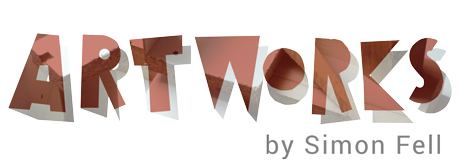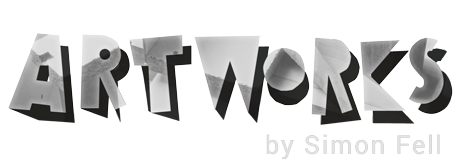I am beginning to see advice from several US art marketeers (who now seem to be turning their attention to UK artists en masse and in earnest) that if we want to get in on the new possibilities opened up by online marketing we need to master Facebook. The common idea seems to be that as individual artists we can by-pass the gatekeepers (curators, gallery owners, critics) that used to control access to the art market (and probably still do at the high end) and use online marketing to get directly to people who want to buy our work.
Get active on social Media
One aspect of this advice is to shape up your own website and be sure to include an online shop. The other obligatory strand is that to feed your website you will have to become active on and knowledgeable about Facebook, and to a lesser extent, other social media brands.
The kind of advice I am seeing is that I should be posting several times a week. What the advice boils down to is that I should make time to feed Facebook informative posts about my art practice to keep their/my audience engaged and aware of my existence.
Sustainable writing
I have done quite a lot of blogging in the past and find the medium problematic because it’s so brief and if you are not careful, shallow. There are so many articles that either seem to have been written by robots or appear to be written just to score well with search engines rather than engage real people with authentic information. I suppose my model of a quality piece of writing is based on something like the late Alistair Cook’s weekly broadcasts on BBC radio 4. I am sure that says a lot about me, my age and background and the fact that I am not a professional writer. I would guess that a pro would adjust to the brief they were given straight away and drop the grandeur without further thought. The medium is brief and informal by its nature, so I think I have to adjust my ambitions to something more achievable. This adjustment is important as it makes the whole project more sustainable over time.
Quality control
So the question for me now is how can an artist like me pitch their social media posts? If you accept that to make this medium work you have to feed the beast with regular bulletins how do you maintain some quality and avoid descending into too-much-information, over-familiarity, over-exposure of your process, over-sharing of everything, the minutiae of your work and life? No one wants to watch or listen to a running commentary and so much of social media is just that.
Deal with the devil
The fact is I do not know the answer to this, but I am learning. Facebook, Twitter et al are perfectly happy for us to become enslaved to the voracious entitities that they are. It’s a kind of deal with the devil, they take part of our soul and provide us with a flock of potential admirers. The key to this is that the flock in question (hand picked by each of us) could potentially be our buyers, we are drawn into the bargain and are bound to collude in its continuation. If we nurture them and keep them on our side they could be our new customer base. I am now talking about learning to become more professional with this medium. You can probably hear my ambivalence about this process in the way my phraseology keeps shifting from distaste to aspiration.
And this leads me to the point that with marketing comes a whole new attitude to this audience, as potential customers. Customers need to be cultivated and entertained as opposed to joshing about with them and making fun of them or showing off to them like they are our mates, confusingly some of them might well be our mates too.
Use the pleasure principle
At present making this deal looks unavoidable to me. I now have to integrate it into my schedule. The only solution I can see to not letting it become an oppressive chore is to use the pleasure principle. If I can have fun with social media, play with it in a creative way then it could become a lighter load rather than entirely a burden and I could enlarge my skillset at the same time. Social Media marketing is fast becoming an essential skill in any role so it could help support my practice through employment too.
It seems that we have to learn to balance these pressures – the pressure to feed the stream, the pressure to produce quality content, the pressure not to spend so long on managing your web and social media presence that you get distracted from your core work.
The advice I am seeing almost always says that you need to treat your job as an artist as just that, a job. So this aspect of the work has to be seen in the context of being part of the administration work and you may need to do some schooling to get on top of it. Facebook for instance is now incredibly complex and includes all sorts of hidden functionality in among that maze of an interface.
I think what I am coming to here is that you have to both take a professional approach to social media and try and enjoy it at the same time, if you can’t manage that it is likely to become an unsustainable drain on your energy and on your artistic output.
Useful reference:
Cindy Hohman on creating a posting plan for facebook

